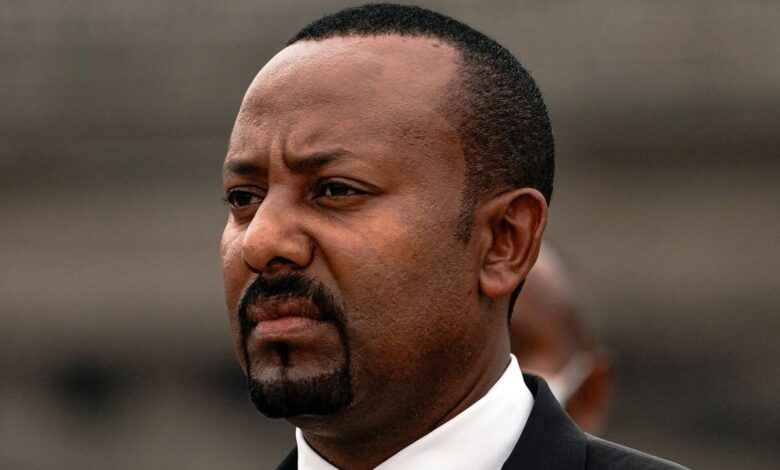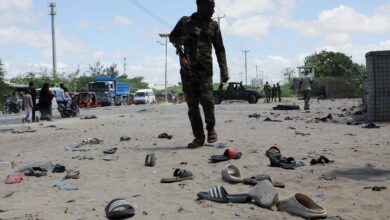Ethiopia’s Social Media Ban Brings Challenges

FOUR months into a social media ban, communications businesses and civil rights groups in Ethiopia are feeling the impact. Strict regulations are making it harder for them to reach audiences or verify information.
In March, the country blocked access to Facebook, TikTok, Telegram and YouTube nationwide following a disagreement with the country’s Orthodox Church, where some religious leaders called for protests.
But human rights groups, including Amnesty International, have said the ban violates freedom of expression and goes against Ethiopia’s constitution, laws and international treaties.
“The restriction further stains the country’s already dismal record on media freedom,” Flavia Mwangovya, Amnesty’s deputy director for East and Southern Africa, said in a statement shortly after the ban was introduced.
The ban has created challenges for those who use social media to share news or to promote their businesses. And while they can use virtual private networks, or VPNs, to circumvent the ban, some say that limits their ability to reach audiences within Ethiopia.
Until the ban was imposed, social media influencer and filmmaker Luna Solomon used the platforms to make advertisements for products and institutions.
An architect by training, she is better known for her videos aimed at young people. She has over 140,000 followers on TikTok alone, and she gained recognition for her film “Behind the Surface,” which examines childhood trauma.
Luna says she can create her work using a VPN, but doing so limits her from reaching new followers and limits her income.
“When we use a VPN, it always changes the country of location. So, the audience is also determined according to proximity,” she told VOA. “It doesn’t reach the people we intend to reach, and that reduces the engagement, viewership and page reach.”
Luna said it is also creating obstacles for generating money.
“It has impacted the income we get, especially when it is in dollars. We cannot withdraw money using PayPal or other trading applications because our location always varies, and the system flags us,” she said.
The ban was imposed following tensions in February, when three archbishops in Ethiopia’s Oromia region broke away from the Ethiopian Orthodox Tewahedo Church and announced a new structure.
The move resulted in clashes where at least three people were killed in Shashamene, over 200 kilometers south of Ethiopia’s capital, Addis Ababa.
Church leaders and supporters then staged a protest and blacked out their social media pages to express solidarity.
Bahru Zeinu, deputy director of Digital Transformation Ethiopia and CEO of Africom Technologies, estimated that the ban has forced 30 million internet users in the country to use VPNs to access social media.
“This situation has caused many problems. After the ban and the introduction of VPNs, internet and social media users have decreased because VPN service is expensive,” he said.
Bahru, whose association focuses on policy and legislation related to digital issues in Ethiopia, said his organization informally submitted a request to lift the social media ban but has not yet received a response.
“They always respond saying they are working on it. Yet to be honest, as the association spokesperson and as an individual expert, the ban should not take this long. It is not even justifiable,” he said.
Some Ethiopian nongovernmental organizations and civic institutions, including the Center for Advancement of Rights and Democracy, have cited concerns about the ban’s impact on the right to freedom of expression and how it has hampered documentation of rights abuses.
Atnafu Brhane, the organization’s program director, said they have submitted an open letter to Prime Minister Abiy Ahmed’s office.
“For the past six years, we had been vocal about how the interruption of the internet affects human rights,” Atnafu told VOA. “And our letter explains how the internet interruptions worsen human rights violations, how various parties can use this opportunity to avoid reporting human rights violations. And it is preventing various sections of society from receiving medical treatment or other services.”
Ethiopia is not alone in restricting access to the internet during times of tension or unrest. In its 2022 Freedom on the Net report, Freedom House found several countries, including Ethiopia, China, Cuba, Russia, Iran and India, all had blocked social media or messaging apps.
Abiy’s government has also imposed similar bans since coming to power in 2018, including during the war in Tigray.
“The shutdown has prevented people in Tigray from sharing their stories and reporting on actions by combatants that human rights groups have described as mass atrocity crimes, limiting opportunities for accountability and global solidarity,” Freedom House said in its report.
In response to VOA’s request for comment, internet and telephone provider Ethio Telecom said via messaging app, “The decision didn’t come from us. Please contact other government officials.”
Ethio Telecom CEO Frehiwot Tamru said in a presentation on June 23 that her organization was waiting for signals from officials to open internet access.





